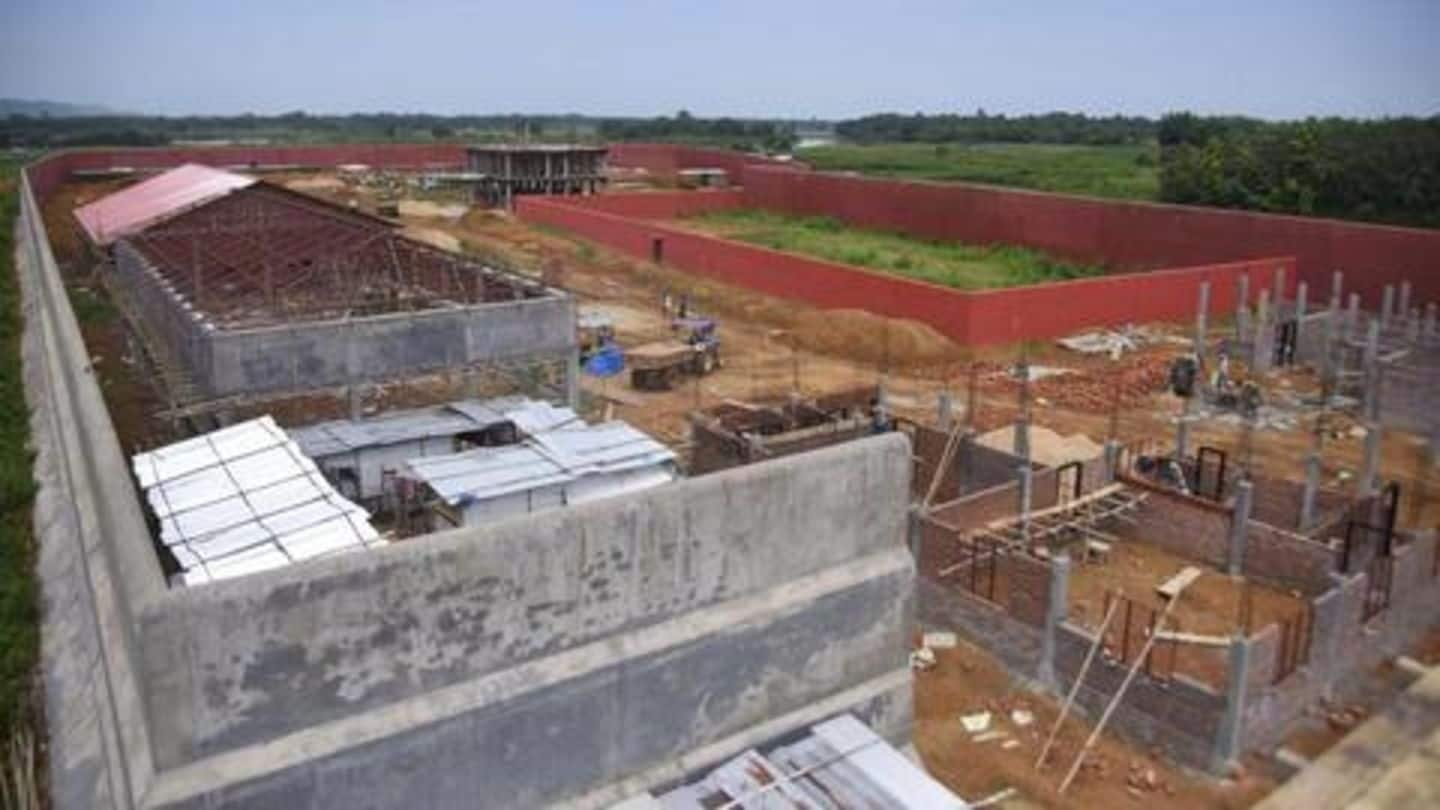
All you need to know about detention centers in India
What's the story
Since the Citizenship Act was recently amended, there has been a lot of talk about the National Register of Citizens and detention centers expected to confine those declared foreigners under the NRC exercise. With both Prime Minister Narendra Modi and Home Minister Amit Shah claiming there is a lot of fake news surrounding it all, let's review what we do know about detention centers.
Detention centers
What are detention centers?
Detention centers are places designed to hold illegal immigrants who have been detected by authorities and await deportation to their country of origin. Foreigners convicted in India are also held in detention centers after completing their jail sentence until they are deported. The government withholds the right to deport foreigners living illegally in India, under Section 3(2)(c) of The Foreigners Act, 1946.
Location
How many detention centers are there in India?
Unlike what PM Modi would have you believe, India has many detention centers. Delhi itself has three for illegal immigrants/foreigners awaiting deportation after completing their jail sentence. One detention center was opened in Goa earlier this year. Assam has six detention centers in Goalpara, Kokrajhar, Silchar, Tezpur, Dibrugarh, and Jorhat. Combined, they house 1,043 foreigners (1,025 Bangladeshis and 18 Myanmarese), according to the Centre.
In Karnataka
Karnataka recently opened a new detention center near Bengaluru
Karnataka has recently opened its first detention center in Nelamangala, near Bengaluru, The Times of India reported. Formerly a Social Welfare Department hostel, the center was expected to open in January, however, the date was advanced upon the Centre's instruction. Currently empty, the facility will house "Nigerian nationals and immigrants" accused of crimes in the city, Karnataka Home Minister Basavaraj Bommai said.
Planned centers
New detention centers expected to pop up across states
The Centre had asked all states and union territories to establish detention centers in 2009, 2012, 2014 and 2018. Now, Karnataka is looking to open 35 temporary detention centers and West Bengal has identified land to establish two detention centers. The former Devendra Fadnavis government in Maharashtra had also planned a detention center in Nerul, however, current CM Uddhav Thackeray scrapped it.
Information
Soon, India's largest detention center will open in Assam
In Assam's Goalpora, India's largest detention center is now nearing completion. According to News18, the Goalpora center is the first among 11 such planned centers, which will be set up in Barpeta, Dima Hasao, Kamrup, Karimganj, Lakhimpur, Nagaon, Nalbari, Sivasagar, and Sonitpur.
NRC link
How are detention centers linked to NRC?
The NRC is a register to enumerate legitimate citizens of India. Naturally, those left out of the register are not recognized as citizens. However, they are not immediately declared foreigners and corralled into detention centers either. They can appeal against their exclusion in the Foreigners' Tribunal—a quasi-judicial court—within 120 days. The tribunal's decision can further be challenged in the High Court and Supreme Court.
Information
19 lakh excluded from NRC not in detention centers: Shah
If declared a foreigner in court, a person will be held at these detention centers until deportation. However, Shah recently said that the 19 lakh excluded from the NRC final list are living in their homes and haven't been moved to detention centers.
Conditional release
Detainees may be granted conditional release after 3 years' detention
In May, the Supreme Court had ordered that illegal foreigners who have spent over three years in detention camps be released after executing a bond of Rs. 1 lakh along with two Indian sureties and a verifiable address. The detainees to be released will have their biometrics and photos recorded. The released detainee must also report to a police station weekly.
Controversies
What are the fears around detention camps?
The anxieties of the implementation of NRC aside, human rights activists have raised alarms over the condition of existing detention centers which set a precedent for the ones being set up across India. Since 2011, 28 people have died in detention camps in Assam. The deceased include an infant whose mother was later found to not be a foreigner.
Information
Centre directs detention centers to have modern amenities
In light of these concerns, the Centre—in a Model Detention Centre Manual—directed all detention centers to have facilities such as crèches, skill centers, and access to the concerned mission/embassy/consulate for assistance. Whether these new detention centers are suitable for detention remains to be seen.